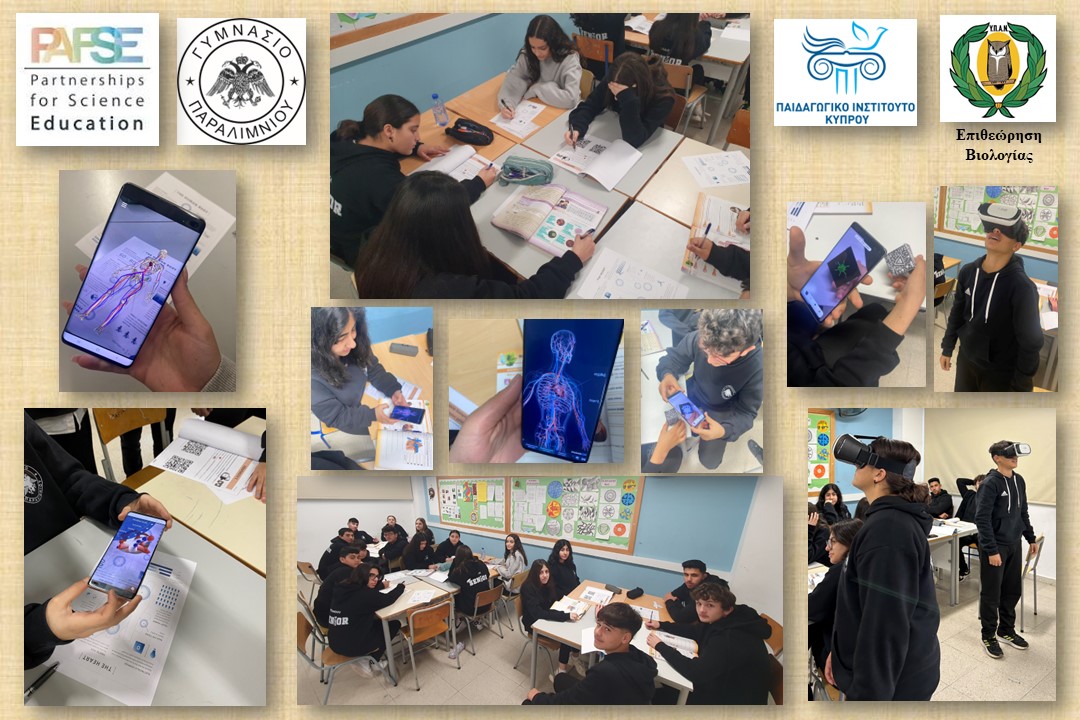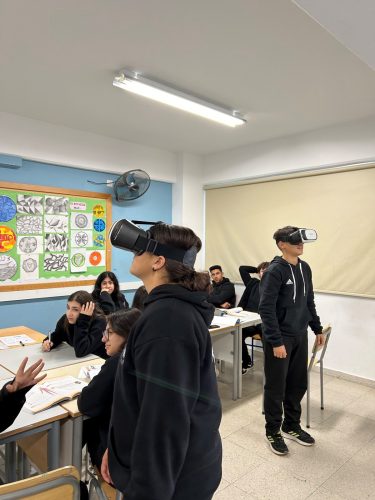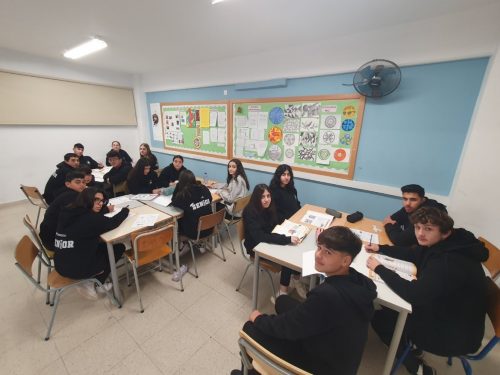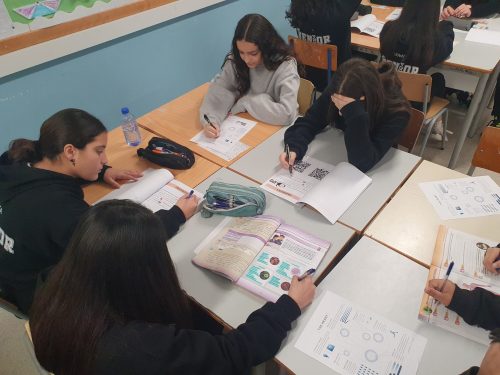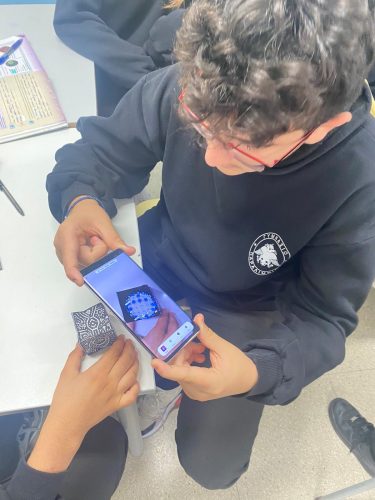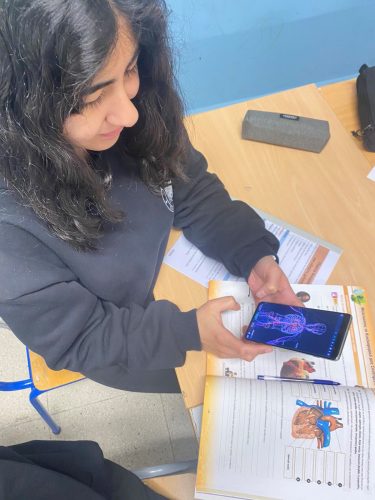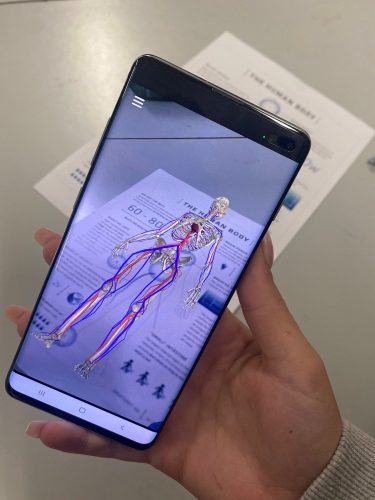Actions of the European Research Project PAFSE at the Paralimni Gymnasium: Using Virtual and Augmented Reality Technologies for the investigation of a socio-scientific issue about vaccination.
Since the start of the school year 2023-2024, the European Research Project Partnerships for Science Education (PAFSE), which is funded by the European Union (EU Horizon 2020 Research and Innovation Program) and whose local partner is the University of Cyprus (UCY), is being implemented at Paralimni Gymnasium. In this implementation we have undertaken public health education actions with the aim to raise awareness and prepare both the school community and the wider local communities of Paralimni and Ayia Napa to prepare for future epidemics and other public health challenges.
A series of educational and public outreach activities have been carried out in the subject of Biology. The recent investigation of the socio-scientific issue How science responds to vaccines hesitancy, was one of the more significant actions within the project. Various activities took place from January 29, 2024, to February 6, 2024, involving 9th Grade students. The focus was on understanding the structure and function of the human circulatory system (heart and blood vessels), as well as the circulation of blood and the purpose of each component. During these sessions, the following concepts were discussed: Microorganisms (Microbes), Pathogens, Infection, Contagion, Infectious Diseases, Antigen, Immune System, Antibodies, Immunity, Vaccines. To enhance students’ understanding of these concepts, educators utilized Extended Reality Technologies in the classroom, including Virtual Reality (VR) and Augmented Reality (AR) tools. This approach enabled students to develop conceptual understanding and scientific skills while using modern technological tools. The lead teacher for these activities is Mrs. Theonie Loizou (MA), a Biology teacher at the Paralimni Gymnasium.
In particular, the students had opportunities to engage with a range of software and applications related to Virtual Reality (VR) and Augmented Reality (AR). These materials included content related to the human circulatory system as well as information about pathogenic microorganisms, such as Merge Object Viewer, Anatomy 4D, Human Body and 360-degree VR videos. It is worth noting that, before conducting these activities, the biology team at Gymnasium Paralimniou had attended a specialized training program focused on the use of Extended Reality Technologies in Biology education. This training took place at the Cyprus Pedagogical Institute (PI) on December 12, 2023, with Dr Christos Rousias, teacher trainer at Cyprus PI, as the main presenter, and Dr Panagiota Mylona, Inspector of Biology, Cyprus Ministry of Education, as the co-organizer. Additionally, the Biology teachers from Paralimni Gymnasium had the opportunity to exchange experiences and materials related to Extended Reality Technologies in pilot lessons. These professional learning activities were jointly organized by Cyprus PI and the Inspectorate of Biology and were promoted in various schools. The most recent pilot seminar occurred on January 22, 2024.
Through discussion and written feedback from the students, the completion of the above actions within the PAFSE program revealed that the integration of these digital technologies into the implementation of activities encouraged students to participate more actively in the learning process. It enhanced their understanding of concepts related to the human circulatory system and immunity. Moreover, it significantly contributed to advancing the specific goals of the PAFSE project in relation to public health education within the school and the local communities.
These actions, conducted in a pleasant learning environment, motivated students to engage in learning, facilitated differentiated teaching, and enabled the attainment of challenging learning objectives by the participating students. In addition, it encouraged the student community to connect with the representatives of the local communities and discuss ways of addressing future challenges related to public health, including potential responses to future epidemics, using vaccines.

